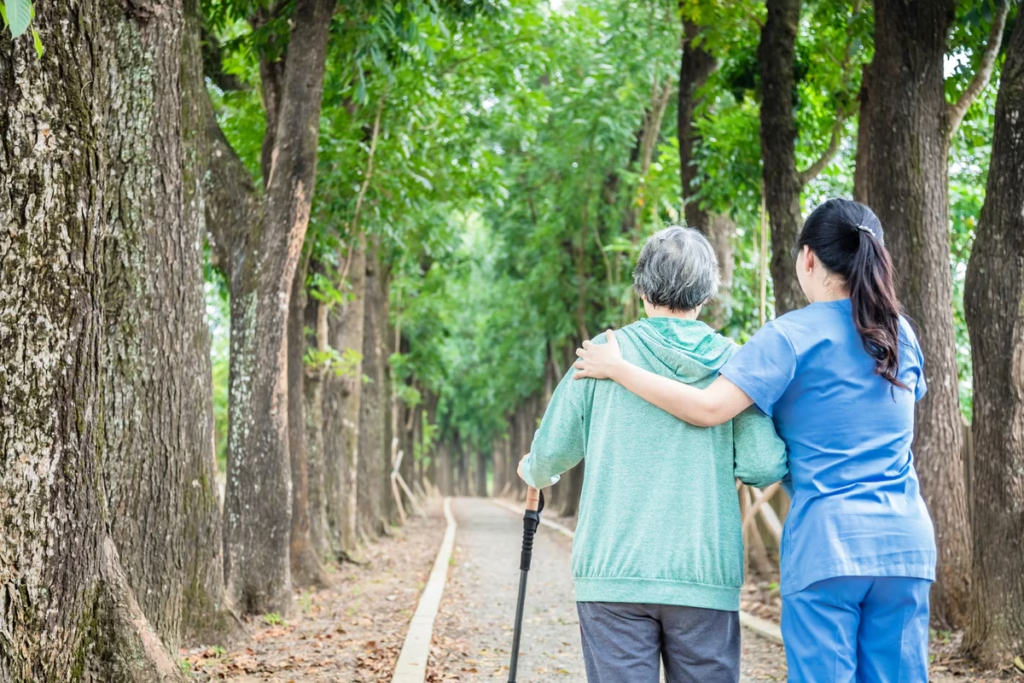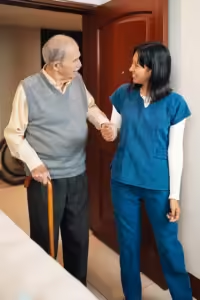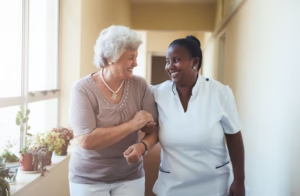Signs Your Loved One May Need In-Home Care – 10 Indicators to Watch
💡 Knowing when it’s time for in-home care can be a difficult decision. But acting early can keep your loved one safe, comfortable, and independent. In this article, we’ll cover 10 signs your loved one may need in-home care—so you can take the next step with confidence.
1. 🍽️ Unexplained Weight Loss
If your loved one is noticeably thinner or skipping meals, it could mean they’re struggling with cooking or grocery shopping.
🧠 Poor nutrition can also lead to weakness and cognitive decline.
2. 🚿 Decline in Personal Hygiene
Are they wearing the same clothes for days or avoiding showers?
This often signals a need for support with bathing, dressing, or grooming—services a caregiver can provide with dignity.
3. 💊 Missed Medications
Have you found expired prescriptions or confusion about dosage?
⚠️ Medication mistakes are one of the leading causes of ER visits for seniors.
➡️ Read how our caregivers help with medication reminders
4. 🤕 Falls or Balance Issues
Even minor slips can be dangerous. If they’ve fallen or seem unsteady, it’s time for help.
Caregivers assist with walking, transfers, and fall prevention techniques.
5. 🧹 Neglected Household Tasks
Messy kitchens, spoiled food, and unpaid bills may indicate trouble keeping up.
Caregivers can step in to help with light housekeeping and meal prep.
6. 🧩 Memory Problems or Confusion
Are they repeating questions, forgetting names, or wandering?
These are early signs of cognitive decline—home care adds routine, structure, and safety.
7. 😔 Mood Changes or Withdrawal
Is your loved one more irritable, sad, or isolated?
💬 Companionship is an important part of emotional well-being.
➡️ Learn how caregivers provide emotional support
8. 🥤 Signs of Dehydration or Malnutrition
Watch for dry mouth, dizziness, or lethargy. Caregivers encourage hydration, cook balanced meals, and help with feeding if needed.
9. 🚗 Trouble Driving or Navigating
Frequent dings on the car? Avoiding errands? This may show it’s no longer safe to drive.
A caregiver can assist with errands, transportation, and accompany your loved one to appointments.
10. 🧍🏽♀️ You Feel Overwhelmed
This may be the most important sign.
😓 If you’re exhausted or burned out, it’s OK to ask for help.
➡️ Read our tips for family caregiver burnout
✅ When to Take Action
If you’ve noticed any of these signs, trust your instincts. Early action can improve quality of life and reduce the risk of hospitalization.
Want to explore options or get help deciding next steps?
➡️ Read: How to Choose the Right Home Care Provider in Texas
💚 Let us support you and your loved one with compassionate, professional care.
📞 Schedule a Free Consultation Now
📧 admin@insigniahcs.com | ☎️ 866-805-6868





